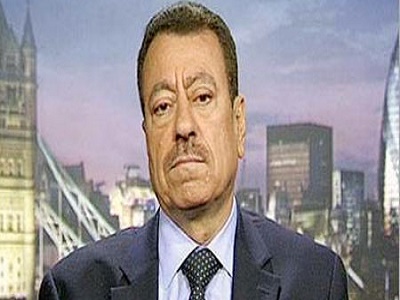Did the detained media moguls capitulate to Muhammad Bin-Salman?
YemenExtra
By Abdel Bari Atwan
Between Friday evening and Saturday morning, the Saudi authorities released some of the most high-profile of the 200+ individuals arrested nearly three months ago on charges of corruption. Their detention had become a liability to the kingdom due to the damage it did to its reputation and that of its legal system and the media uproar that accompanied it.
Prince Alwaleed Bin-Talal was the most prominent of the figures to be let out of the luxury penitentiary at Riyadh’s Ritz-Carlton Hotel. He was joined by his namesake Waleed al-Ibrahim, major shareholder of the MBC media empire, as well as Prince Turki Bin-Nasser, former head of the meteorology agency, and Khaled al-Tuwaijri, who was chief of the royal court under the late King Abdallah.
The Saudi authorities and Attorney-General Sheikh Masoud al-Mu’jib have provided little information or clarification about the releases and the circumstances surrounding them. It remains to be seen whether the detainees were freed because they were found innocent of the corruption and embezzlement charges levelled against them, or because they agreed to ‘financial settlements’ entailing payments into the state treasury.
Alwaleed Bin-Talal – who got more media exposure in the weeks since he was detained than throughout his life – has emerged as the biggest winner from the entire affair.
The image he managed to project both inside and outside the kingdom was of someone who insisted throughout on his innocence, refused to admit to corruption charges, and insisted on being given a fair trial. He strengthened his hand further with the exclusive interview he granted to Reuters – with the authorities’ consent – in which he denied allegations that he had been mistreated in any way and played down his detention as the result of a mere “misunderstanding” which would soon be cleared up and which he was keen to resolve completely.
His release two days after conducting this interview gives the impression that it was part of a deal with the authorities, and that he was freed without agreeing to a financial settlement. It is implausible that such a settlement would have been arrived at within 24 hours. The nature of the deal that resulted in his release – be it financial, political or media-related – should become clearer in the days and weeks to come, either as a result of public pressure on the Saudi authorities to provide explanations, or of leaks to the foreign media by freed detainees.
It was clear from the outset of the campaign of arrests that Crown Prince Muhammad Bin-Salman, Saudi Arabia’s strongman and ultimate decision-maker, was intent on gaining total control of the Saudi media. That applied above all to the foreign-based media outlets owned by Saudi princes or businessmen, which could potentially be used against him in power-struggles between competing wings of the ruling family.
It was no coincidence that he detained Alwaleed Bin-Talal, who owns the Rotana TV network, and who had earlier been prevented from launching a news network based in Bahrain, along with Waleed al-Ibrahim — who heads the giant Dubai-based MBC network that is seen as loyal to former King Fahd’s branch of the ruling family, and turned down numerous attempts by Muhammad Bin-Salman before he became crown prince to purchase the business — and Saleh Kamel and his son, who run the first Saudi media institution to base itself offshore, the sports and entertainment network ART.
It is likely that that the latest batch of Ritz-Carlton inmates to be released, especially the media moguls, were freed as a result of media deals rather than financial settlements — deals that place their outlets in hands of Muhammad Bin-Salman and his small coterie of aides.
Busybodies seeking to learn the truth about the arrests, or at least part of it, will have to wait to see how much personal freedom is granted to the individuals released on Friday and Saturday — especially their freedom of movement and speech, including to speak about the circumstances of their detention. In other words, will they be transferred from house arrest in the Ritz-Carlton Hotel to house arrest in their own luxurious palaces, or will they be allowed to travel abroad and conduct their business freely?
The Ritz-Carlton drama will continue to intrigue people inside and outside Saudi Arabia for some time. In the short term, however, the release of the detainees should ease the political and media headaches it has created for the Saudi authorities, and especially for Muhammad Bin-Salman.
Corruption will remain one of the most dangerous afflictions plaguing Saudi Arabia, as with all other Arab countries, and perhaps the most important thing the Ritz-Carlton affair achieved was to shine a light on the phenomenon.
That puts pressure on the Saudi state to mount a genuine fight against it if it is to salvage its credibility and refute charges of combating corruption selectivity and to settle personal scores.

